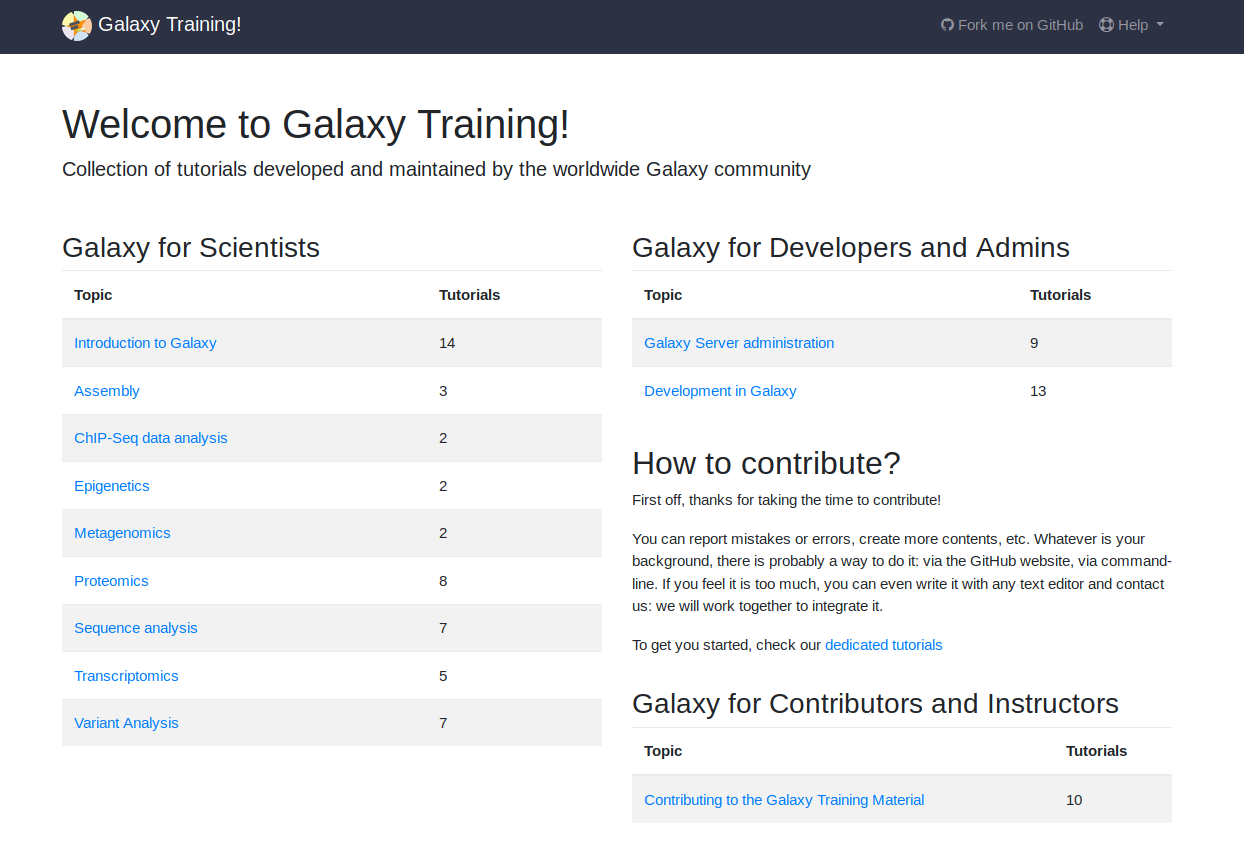Galaxy Freiburg
The homepage of the Freiburg Galaxy community
Galaxy is an open-source platform for FAIR data analysis that enables users to:
- use tools from various domains (that can be plugged into workflows) through its graphical web interface.
- run code in interactive environments (RStudio, Jupyter...) along with other tools or workflows.
- manage data by sharing and publishing results, workflows, and visualizations.
- ensure reproducibility by capturing the necessary information to repeat and understand data analyses.
The Galaxy Community is actively involved in helping the ecosystem improve and sharing scientific discoveries.
News
SURF Research Cloud as infrastructure for Galaxy in The Netherlands
Dutch scientists can now use Galaxy in secure environments.
Enhancing Scientific Training: The Galaxy Training Network’s Role in the ELIXIR Training Life-Cycle
In the rapidly evolving landscape of data science, continuous learning and skill development are crucial
New Interactive Tools Panel in Galaxy 25.0
New panel allocated for interactive tools on Galaxy
🔬 QuPath-Galaxy: Bringing digital pathology image analysis to your browser.
Explore whole slide images and run powerful tissue analysis directly in your browser with the QuPath-Galaxy interactive tool.
RSpace is now integrated with Galaxy
Analyze data with Galaxy, keep it under control on RSpace
Events
Jun 30 - Jul 4From Data to Discovery: Metagenomics, RNA-Seq - NGS Bioinformatics with Galaxy
This course introduces scientists to the data analysis platform Galaxy
Jul 8 - Jul 9The first Galaxy Tool Development Workshop in Freiburg, Germany
Learn to build and publish Galaxy tools in our first hands-on workshop in Freiburg.
Learn how Galaxy supports research data analysis and FAIR data management in this online talk hosted by Imperial College London.
Our services
The Freiburg Galaxy Team is offering several services to enable reproducible and accessible research for everyone:
Training
We regularly provide workshops.
But we cannot always meet capacity, so we've put all of our training materials online. This has become a community project with people from all over the world contributing training materials.
Topics include: variant analysis, transcriptomics, metagenomics, epigenetics, and many more!

Acknowledgements
We are aiming to maintain high competency and provide high-quality data analysis services to all our Galaxy users.
Therefore, we request that you acknowledge this service by including the members of the Freiburg Galaxy Team as co-authors if they have made a significant intellectual and/or organizational contribution to the work described (conceptualization, design, data analysis, data interpretation and/or input into drafting, revising or writing any portion of the manuscript).
Individuals who have contributed to the project, but whose contributions do not rise to the level justifying authorship, can be recognized in the acknowledgements section of the manuscript as follows:
The authors acknowledge the support of the Freiburg Galaxy Team: Person X and Prof. Rolf Backofen, Bioinformatics, University of Freiburg, Germany funded by Collaborative Research Centre 992 Medical Epigenetics (DFG grant SFB 992/1 2012) and the German Federal Ministry of Education and Research (BMBF grant 031 A538A de.NBI-RBC).
Additional funding of projects and/or provision of material expenses are welcome as well, to help support our growing Galaxy community in Freiburg.